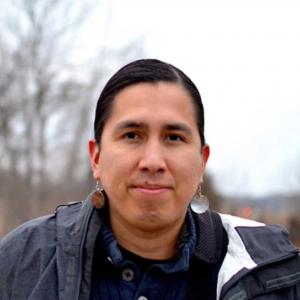The Tribal Climate Leaders Program
Date
William Crawford is a recent University of Colorado Boulder graduate and fellow of the Tribal Climate Leaders Program (TCLP), run through the North Central Climate Adaptation Science Center. The TCLP has supported Native American graduate students to become the next generation of Tribal environmental leaders and, historically, has been open to students affiliated with the 32 federally-recognized Tribes in the 7-state North Central region of the US.
Interested in studying the implementation of prairie restoration projects to work towards climate adaptation, resiliency and sustainability on Tribal lands, Crawford effectively blended his scientific knowledge with his Dakota Tribal cultural knowledge to earn his Masters’ degree in environmental sciences. His research targeted a significant plant to the Dakota, which once grew in abundance in the Northern Plains. As Tribal lands have decreased in size over the past two centuries, so too has the availability of some Native plants, likely due to lack of environmental policies to protect or sustain them.
Given its medicinal properties and place in oral history and stories, the ṫípsiŋna in the Dak̇ota language, or Psoralea esculenta (common names: prairie turnips, breadroot, scurf pea, and pomme de terre) is at risk not only due to climate change, but also land use change, as an increase in cropland decreases the land available for Native plants. Crawford’s research reveals that overharvesting remains a threat as well, which could be attributed to the loss of traditional knowledge.
"What makes Will amazing is how he brilliantly blended qualitative and quantitative social science methods and his own traditional knowledge to produce a scientifically- and culturally-relevant thesis that will support his tribe, the Sisseton-Wahpeton Oyate, in managing a significant plant species," says his supervisor, Dr. Lisa Dilling, professor of environmental sciences at the University of Colorado Boulder and adaptation co-lead for the NC CASC.
Crawford is grateful to the University of Colorado Boulder and the NC CASC for facilitating his experience in the Tribal Climate Leaders Program. “I was able to learn from some amazing professors and it is the knowledge and skills that I obtained from their classes that I will carry into my next chapter. Also, thanks to the Tribal Climate Leaders Program, I will also carry the knowledge and skills shared with me by the elders and knowledge carriers in my own Tribal community,” he states.
We at NC CASC are proud of William and wish him well in his future endeavors!


